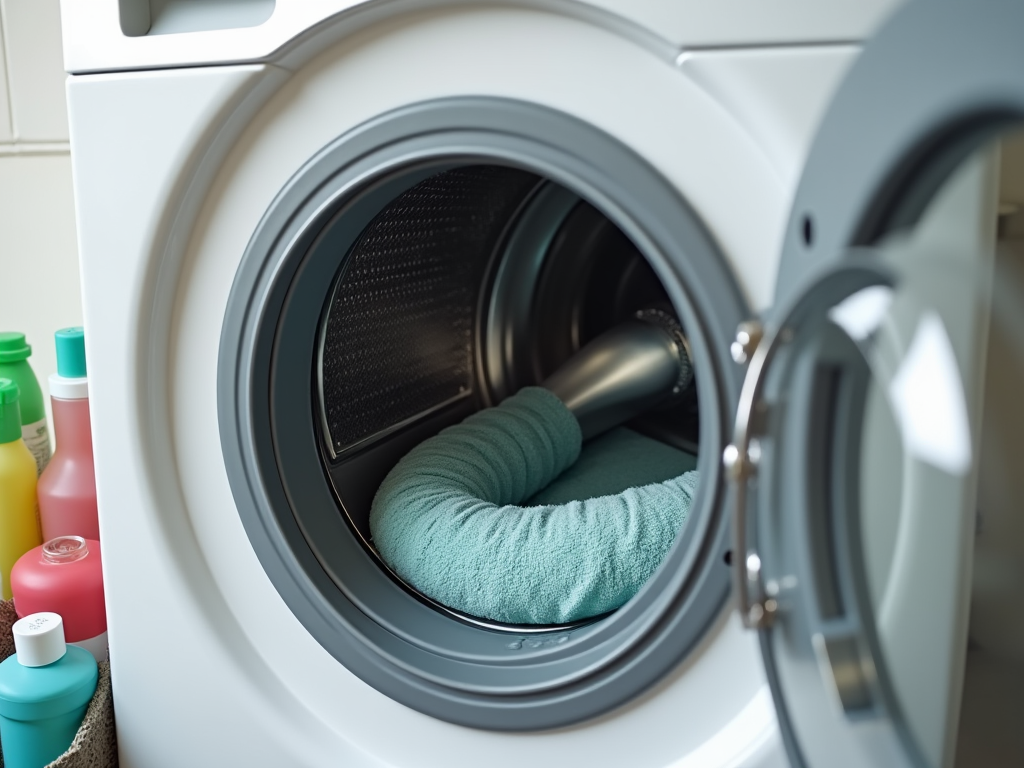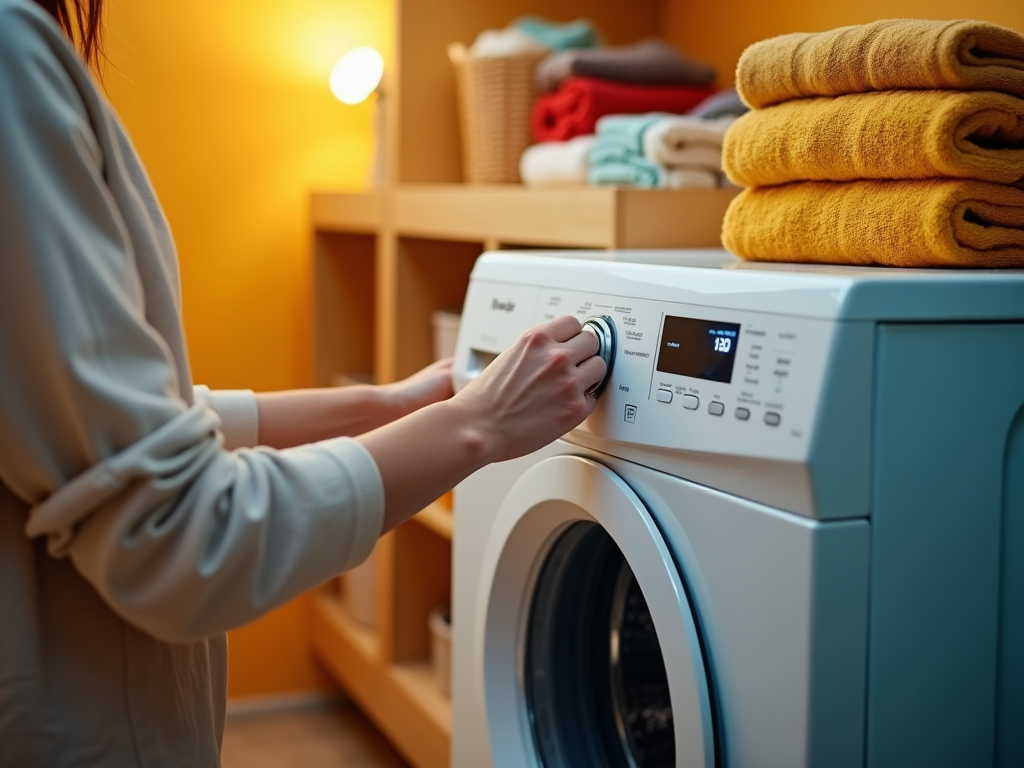When it comes to household chores, the washing machine stands out as a modern-day miracle. It saves us time, effort, and sanity when tackling mountains of laundry. However, like any reliable ally, your washing machine requires a bit of care and attention to continue performing at its best. With a few simple maintenance practices, you can ensure that your appliance runs smoothly for years to come. Not only will this enhance its efficiency, but it will also extend its lifespan, keeping your laundry days hassle-free.
One of the key components of washing machine maintenance lies in regular cleaning. Many users overlook this crucial aspect, which can lead to unpleasant odors, mold growth, and even mechanical issues. The good news is that cleaning your appliance is not as daunting as it may seem. With a straightforward approach, you can keep your washing machine in pristine condition, ensuring thorough washes and eliminating any lingering smells. This article will guide you through essential maintenance tips, providing you with the knowledge you need to take care of your washing machine.
Understanding Your Washing Machine

Washing machines typically come in two designs: front-load and top-load. Each type has its characteristics and can require slightly different maintenance protocols. Front-load machines often use less water and energy but can demand more frequent attention to mold and mildew due to their sealed environment. On the other hand, top-load machines are generally easier to access when loading and unloading laundry, yet they might need more vigorous cleaning inside due to soap build-up.
Regardless of which style you have, knowing the key components will greatly help in sustaining its performance. From the drum and tub to hoses and pumps, each part plays a vital role in the washing process. Regular checks on these components can help you quickly pinpoint any emerging issues and address them before they become serious problems.
Regular Cleaning Practices

One of the cornerstones of keeping your washing machine in top shape is adhering to a consistent cleaning regimen. The interior of your washer can accumulate soap scum, dirt, and possibly residual moisture, leading to bad smells and decreased performance. Regularly cleaning your machine protects its internal mechanisms and ensures that your clothes come out smelling fresh.
How to Clean Your Washing Machine
- Run a hot water cycle with either vinegar or a specialized washing machine cleaner monthly.
- Clean the detergent dispenser and the rubber seals with a damp cloth and antibacterial solution.
- Wipe the exterior surfaces with a gentle cleaning agent to maintain its appearance.
| Cleaning Activity | Frequency |
|---|---|
| Run cleaning cycle | Once a month |
| Wipe down exterior | Every week |
| Check hoses | Every three months |
Check Hoses and Connections
Another vital aspect of washing machine maintenance is keeping a close eye on hoses and connections. Faulty hoses can lead to leaks and significant water damage in your home. Therefore, checking the hoses regularly is both prudent and essential. Look for signs of wear, such as cracks, bulges, or fraying edges that can compromise their integrity.
Additionally, ensure that the connections to both the washer and water supply are secure. A loose connection can easily lead to leaks, resulting in inconvenience and costly repairs. The proactive approach is the best strategy; the sooner you can detect a problem, the less damage it can incur.
Run Maintenance Cycles
Maintenance cycles are specially designed settings on washing machines aimed at cleansing the interior components and keeping everything running smoothly. Regularly using these cycles can help eliminate residues and keep your machine fresh. It is recommended to run a maintenance cycle at least once a month, utilizing the hot water setting along with appropriate cleaning agents, such as vinegar or commercial washing machine cleaners.
This practice enhances the efficiency of the machine and significantly reduces the risk of developing unpleasant odors. It’s a small effort that pays off in extending the life of your appliance and maintaining its washing capability.
Care for the Drum and Tub
Humidity and moisture can be breeding grounds for mold and mildew within the drum and tub of your washing machine. To combat this, it is crucial to leave the door ajar after each wash. This simple habit allows air circulation, reducing moisture buildup. It can be easy to forget this step in the busy rhythm of modern life, yet it is integral to effective maintenance.
Another key tip is to run an empty cycle with just hot water and a cup of white vinegar every few months. This will help eliminate any stubborn bacteria or odor that may linger, keeping your clothes fresh and clean.
Use the Right Detergent
Choosing the correct type of detergent is also essential to protect your washing machine’s functioning. Many machines, especially high-efficiency (HE) models, specifically recommend using HE detergents due to their low sudsing properties. Using regular detergent in these machines can lead to excessive foam, which may harm not only the washing machine but also affect the cleaning performance.
Make it a point to read the labels and choose detergents that align with your washing machine type. This small change in your laundry routine can make a significant impact on the longevity of your appliance.
Monitor for Unusual Noises
Another important maintenance tip is to pay attention to any unusual noises during operation. If your washing machine begins to make strange sounds, it could indicate an underlying issue. Rattling, banging, or grinding noises may point to problems with components like the motor or the drum bearings. Always take such signs seriously, and don’t hesitate to call a professional if you are unsure about any repairs needed.
Conclusion
Keeping your washing machine in peak condition requires commitment and diligence. The key practices shared here—from regular cleaning to monitoring unusual noises—arm you with the knowledge to ensure your appliance runs smoothly. Remember that your washing machine is a workhorse of your home, and giving it a little love and attention can extend its life and efficiency. Establishing a regular maintenance routine will not only save you from costly repairs in the long run but also make your laundry experience far more enjoyable.
Frequently Asked Questions
- How often should I clean my washing machine?
- What should I do if my washing machine leaks water?
- Can I use regular detergent in a high-efficiency machine?
- How can I prevent bad odors in my washing machine?
- What are the signs that my washing machine needs repair?
It’s advisable to clean your washing machine every month to ensure optimal performance.
Check the hoses for any cracks or loose connections, and replace them if necessary.
No, using regular detergent can create excess suds and potentially damage the machine.
Leave the door open after use to allow airflow and regularly run a cleaning cycle with vinegar or specialized cleaner.
Look out for unusual noises, failure to spin, or water not draining properly; these may indicate a need for professional repair.
